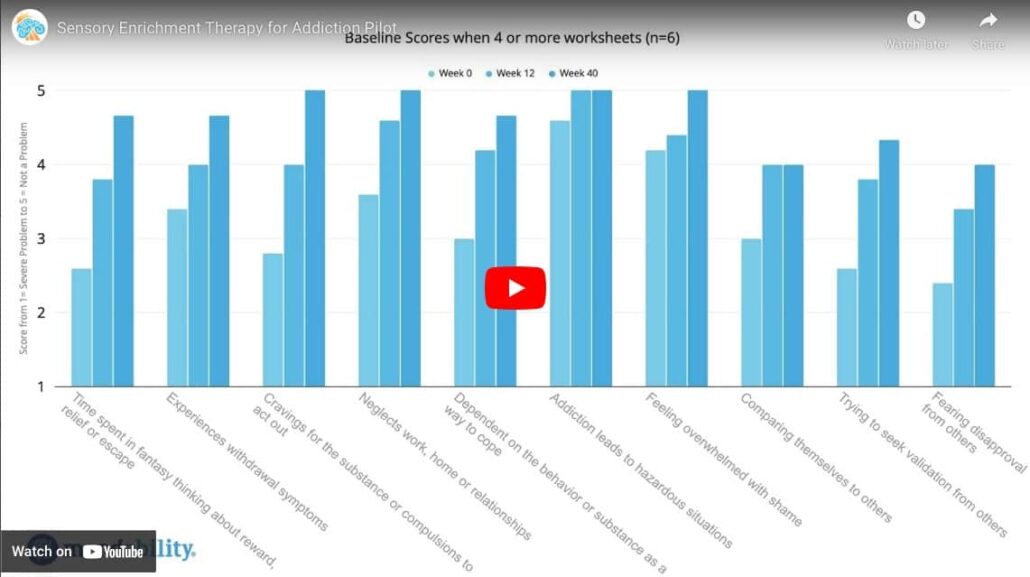Sensory Enrichment Therapy
for
Addiction Recovery
Scientific research shows environmental enrichment improves the brain’s ability to overcome addiction
We believe sensory enrichment could help in the following areas:
- Fewer withdrawals symptoms,
- Fewer clients wanting to leave against professional advice,
- Improved mood regulation during and post treatment,
and even possibly - Long term recovery with a lower rate of relapse.
How it works!
We use sensory enrichment to help addicts feel more in control and more at peace by:
helping the brain to re-balance its neurochemistry
facilitating increased processing speed between both sides of the brain
improving sleep mechanisms
populating weak brain functions with new connections
Sensory Enrichment Therapy is a new evidence-based treatment modality that was developed by translating the protocols used in the science lab into short, fun, hands-on experiences that people can do from home and in residential programs to trigger the brain’s plasticity mechanisms.
It has been validated in randomized controlled trials with children with developmental disorders including autism spectrum disorder. Children who followed the program were 6 times more likely to achieve clinically significant gains compared to their peers who only followed standard care.
Pre-clinical evidence
There have been many animal studies looking at the impact of environmental enrichment on addiction. Key findings include:
- Reduces craving incubation in male and female rats.
- Reduces cue-induced heroin seeking in male in female rats.
- May have a potential treatment utility for heroin use disorders.
- Significantly shortened chronic stress-delayed extinction and decreased the reinstatement of ethanol-conditioned place preference.
- An effective behavioral strategy to reduce drug-related behaviors.
- Leads to neural adaptations in brain regions highly implicated in drug reward and use disorder.
- Beneficial for individuals struggling with substance use disorder.
- Response to cocaine of EE mice was reduced (approximately 65%) compared with sensitized mice housed in standard environments.
- After 30 days of EE, the reactivity to cocaine of sensitized mice was similar to that of the non-sensitized mice that were housed in standard or enriched environments.
- Facilitate abstinence and preventing relapse to cocaine addiction.
- Eliminate already established addiction-related behaviors
Results of 10-person pilot
In Canada, an Outpatient Program Treatment Centre enrolled 10 of their most consistent clients in a 12-week pilot program with Mendability to see if Sensory Enrichment could help their brains compensate for addiction.
We are looking for addiction recovery treatment centers interested in working with us to create the next-generation residential programs.
Would you like to talk to us?
Set up a quick 20-minute call to discuss piloting a program of environmental enrichment to help reduce recovery time and chances of relapse.


